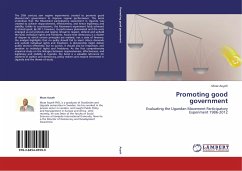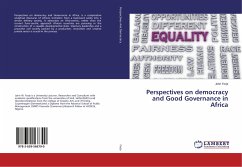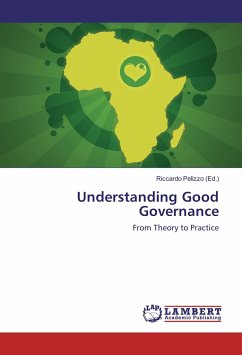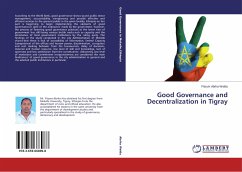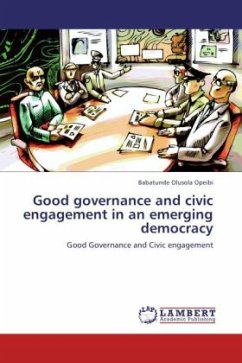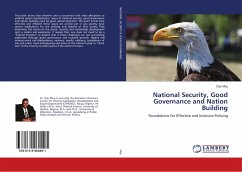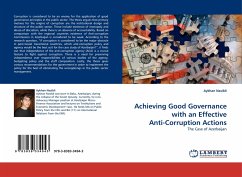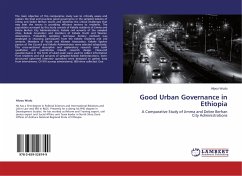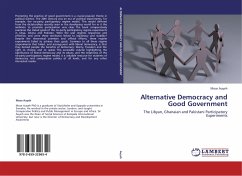
Alternative Democracy and Good Government
The Libyan, Ghanaian and Pakistani Participatory Experiments
Versandkostenfrei!
Versandfertig in 6-10 Tagen
32,99 €
inkl. MwSt.

PAYBACK Punkte
16 °P sammeln!
Promoting the practice of good government is a crucial popular theme in political science. The 20th century was an era of political experiments, for example, the no-party participatory regime model. This model differed from the dictatorships recently seen in the developing world for in it the ambition to promote participation was clear. The book comparatively examines the stated goals of the no-party participatory regime experiments in Libya, Ghana and Pakistan. Were the said regimes responsive and effective, and were these attributes linked to legitimacy and stability? Despite the theoretical...
Promoting the practice of good government is a crucial popular theme in political science. The 20th century was an era of political experiments, for example, the no-party participatory regime model. This model differed from the dictatorships recently seen in the developing world for in it the ambition to promote participation was clear. The book comparatively examines the stated goals of the no-party participatory regime experiments in Libya, Ghana and Pakistan. Were the said regimes responsive and effective, and were these attributes linked to legitimacy and stability? Despite the theoretical premises and official efforts, these regime experiments failed to achieve their goals. Common to all these regime rexperiments that failed, and incongruent with liberal democracy, is that they denied people the benefits of democracy: liberty, freedom and the right to choose and to speak. This accessible volume highlighting the significance of liberal democracy and its values, and the emptiness of the no-party participatory regime model, is a valuable resource for students of democracy and comparative politics of all levels, and for any other interested reader.



